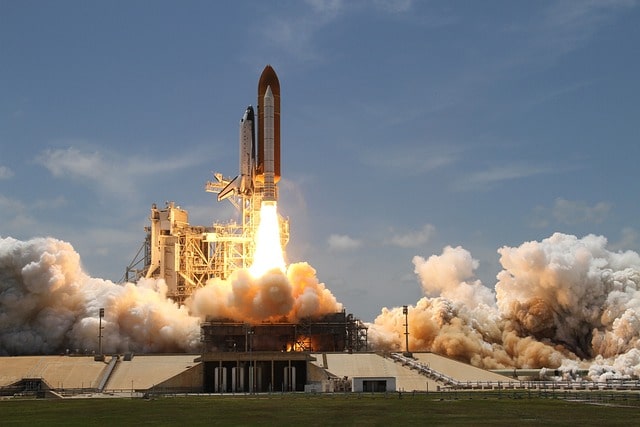The need for advanced propulsion systems has become more pressing in the quest to explore the cosmos and extend our reach beyond Earth’s boundaries. Traditional chemical rockets have served us well for decades, but they have limitations that hinder our ability to explore the vastness of space. Enter fusion rockets – a promising technology that could revolutionize space travel.
Nuclear Fusion Fundamentals
At the heart of fusion rockets lies the concept of nuclear fusion, a process that powers the sun and other stars.
Unlike the fission process used in nuclear power plants, fusion combines light atomic nuclei to release vast amounts of energy. This process holds the key to unlocking a new era of space exploration due to its potential for providing efficient and long-lasting propulsion.
Fusion Rockets vs. Chemical Rockets
While chemical rockets rely on burning fuels to create thrust, fusion rockets operate on a different principle. In chemical rockets, power is finite, and achieving high speeds requires carrying large quantities of it. Fusion rockets, on the other hand, utilize a nearly limitless supply of fuel – isotopes of hydrogen – and produce significantly more thrust per power unit, making them ideal for interstellar travel.
How Fusion Rockets Work?

Fusion rockets work by initiating controlled nuclear fusion reactions within a reaction chamber. This chamber contains hydrogen isotopes like deuterium and tritium, which fuse to release a tremendous amount of energy when subjected to extreme heat and pressure. This energy is then harnessed to produce thrust through various propulsion methods, such as magnetic or inertial confinement. Fusion rockets offer several advantages over traditional chemical rockets:
- High-Specific Impulse: Fusion rockets can achieve much higher specific impulse, meaning they can achieve higher speeds with the same amount of fuel.
- Fuel Efficiency: The fusion process generates energy from less fuel, allowing spacecraft to carry smaller fuel loads and more cargo.
- Faster Interstellar Travel: With their unparalleled efficiency, fusion rockets could reduce travel times for missions to distant planets and other star systems.
- Longevity: Fusion rockets have the potential for extended operational lifetimes, making them suitable for missions that span years or even decades.
As researchers continue to refine the technology and overcome the numerous challenges associated with nuclear fusion, fusion rockets promise to unlock the universe’s mysteries and enable humanity to reach new frontiers.
